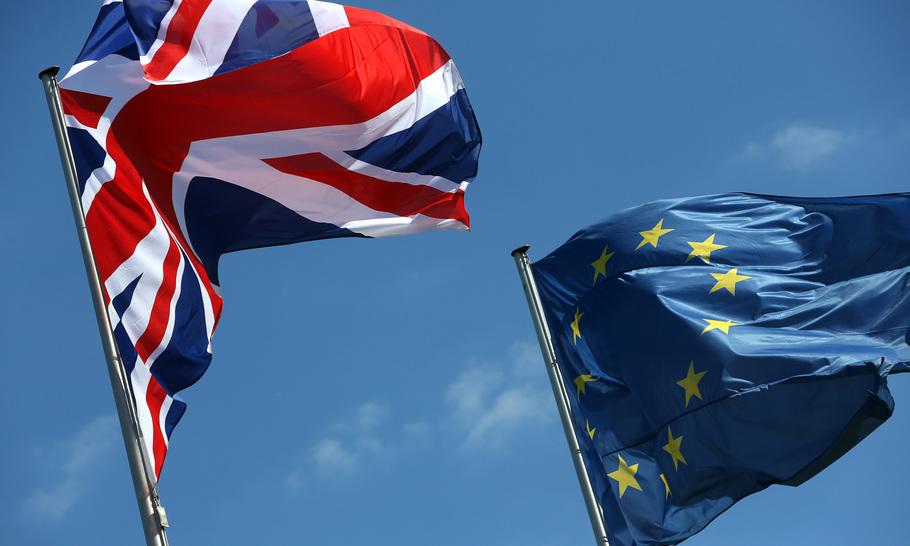Divided Britain

Adam Berry/Getty Images
After the uprising of the Tory backbenchers comes the Cabinet coup. As we enter the last few tumultuous days before Parliament rises for the Christmas recess, speculation is rife that senior Cabinet ministers are demanding that the Prime Minister concede to their demands.
Some, led by David Lidington, want a second referendum, as a way of breaking the parliamentary impasse; their means to achieve it would be a series of “indicative votes” after the expected defeat of the Withdrawal Agreement. This option is supported by Liam Fox and Damian Hinds. Others, led by Sajid Javid, are resigned to no deal emerging before March 29, and so are demanding the wherewithal to prepare for it, as the most likely outcome. Hard Brexiteers would actually prefer what Lidington, the de facto deputy prime minister, calls “crashing out”. Pragmatists, such as Michael Gove, still hope to pivot to a version of the Norway or Canada solutions.
None of this will reassure the public, which still hopes against hope that somebody, somewhere in the depths of Whitehall is still in charge and knows what they are doing. They may be disillusioned by reading the lecture given at Liverpool University’s Heseltine Institute for Public Policy, Practice and Place (no, you couldn’t make it up — but somebody did) by Sir Ivan Rogers, the UK’s former Permanent Representative to the EU, 2013-17. Sir Ivan’s “Nine Lessons” (as he calls them, with a nod to the Nine Lessons and Carols at King’s College, Cambridge) amount to a devastating indictment of the British ruling class from an insider who really does know the EU from bitter experience.
He finds that “the debate in this country— on all sides — continues to suffer from all manner of delusions, fantasies and self-deceptions. And the debate in the EU on the British question, insofar as there is one, suffers from complacency, fatigue and strategic myopia.”
Sir Ivan goes on: “We are in a bad way. And a descent into a deeply troubled and essentially conflictual medium term relationship with the EU, and a deeply divided British politics for a generation, becomes completely inevitable unless we learn these lessons and apply that learning in the next few years.”
You will have to read Sir Ivan’s lecture, available on the University of Liverpool’s website here, if you want to know what his nine lessons are. Suffice it to say that he is a career civil servant who worked for both Tony Blair and David Cameron, so his perspective is that of what used to be called the mandarins.
But he is equally scathing about Remainers as well as Leavers, both of whom he believes to have underestimated the challenges ahead and especially the tactical superiority of the EU in the Brexit negotiations. As he tells it, the Brussels blitzkrieg began on the day of the referendum and was over before the British knew what was happening. The story of the last two years is basically a version of Dunkirk, but without the little ships to save the day.
Brexit as Dunkirk might appeal to Brexiteers who prefer heroic posturing to responsibility, but also to Remainers who delude themselves that if only we could return to the EU fold, we would be greeted like liberators after D-Day. One only needs to look at the news from Paris and Brussels today to see how naive this all is. Both cities have been convulsed with riots in recent days and weeks. An attempt over the weekend by the Flemish far-Right to storm the EU Commission’s headquarters was stopped by mounted riot police. In Paris, the gilets jaunes are still extracting concessions from President Macron, who has now promised a “national debate” on immigration. The French protests are increasingly ugly, with anti-Semitic slogans making a prominent appearance.
A Europe that is simmering with rage and despair is not going to treat the British with anything less than cold-blooded ruthlessness. And Sir Ivan warns that we haven’t seen anything yet. We may try to bail out of Brexit by holding a “People’s Vote”, as Michael Maclay argues eloquently in TheArticle. But this will only create a new set of problems, as the majority who thought they had already voted decisively for Brexit turn on a governing elite that would be seen to have lied and betrayed them. The scenes we have witnessed in Paris over the last month might be coming here soon. We have been warned.





